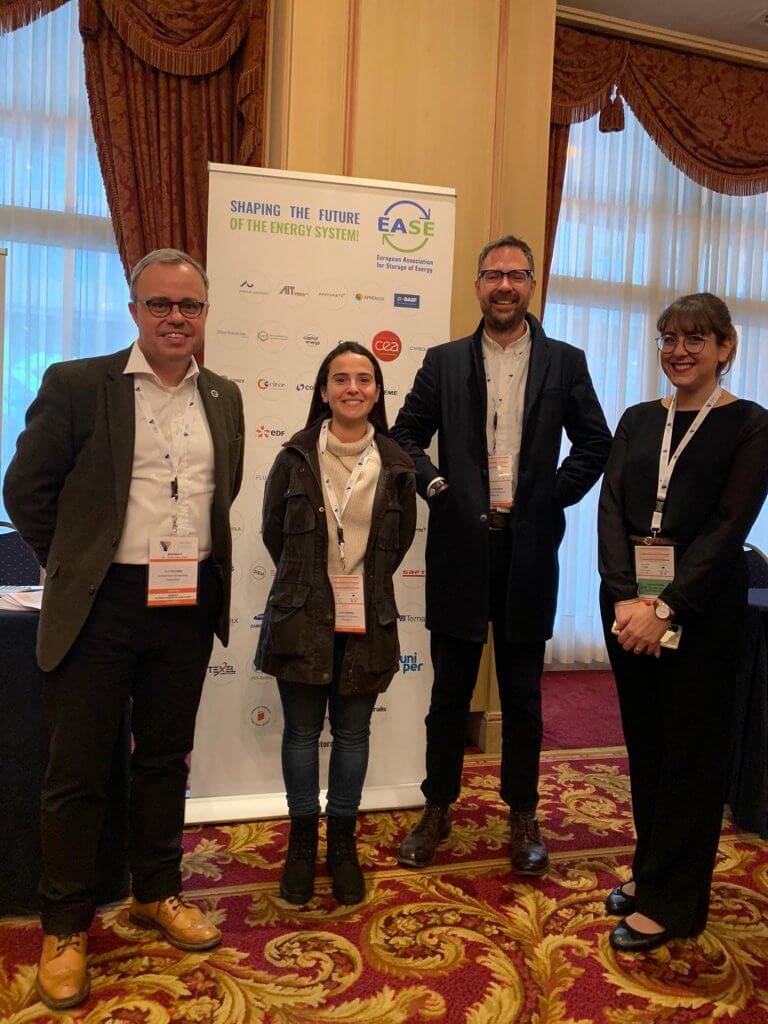

As part of CBI’s technical team, we’ve recently welcomed Begüm Bozkaya. With a BSc degree in Chemistry from the Middle East Technical University and an MSc degree in Materials Science from the Technical University of Munich, she gained extensive knowledge on the effects of carbon additives on negative plates for lead batteries, after using this as a Ph.D. research topic.
After working on several industrial projects for the past 6 years, Begüm joined CBI to gain a broader perspective on lead battery research as her role involves directly working with CBI’s global members from different companies and stages of the supply chain. She will be managing all of CBI’s European Technical projects as well as supporting CBI’s standards program.
According to her, CBI is doing what no one else in the industry is by “combining the knowledge from the industry and research institutes and collecting them in a non-competitive environment”. This means it’s possible to pool knowledge from a range of battery experts in order to advance lead battery technology for all applications, from energy storage systems to automotive.
As part of CBI’s team based in Europe, it is also important to look at the role of EU industry-research-academia partnerships in driving innovation. “We need to strongly defend the place of lead batteries. This is a well-established technology: we are cost-effective, recyclable, we have innovative research initiatives underway, and we’re committed to contributing to a cleaner future in the energy sector, especially to facilitate decarbonisation and support climate goals. It is vital that the EU includes all batteries in their future work plans”.
In that sense, the work developed by CBI through its Technical Roadmap has been essential to collect relevant information for lead battery applications and to help educate the audience regarding the future of this technology that has an enormous potential:
“If we can open new research topics and innovative ideas that can cover what we have in the roadmap, I’m sure lead batteries can still be considered a key player in the efforts to decarbonise, and developed further as a result. Research is the key point.”

When mentioning the new year and the developments that we can expect from advanced lead batteries, Bozkaya said that bipolar or advanced PbC batteries “can bring new research topics” for the industry and that these are “great candidates for EU initiatives”:
“There’s a bright future for advanced lead batteries and a lot of great research projects being developed as a result of CBI’s work, so I believe that in the near future we will be able to show even more how committed the industry is to Europe’s climate goals and, therefore be more involved with EU initiatives through lead battery research projects”.
For more information on CBI’s innovative technical program, click here.
The 4th edition of EASE’s Energy Storage Global Conference took place last week (19 – 21 October) in Brussels and online. With the support of the European Commission, the event provided three days of talks and discussions around the future of energy storage, its current market, policy frameworks and the latest trends in technology.
For the opening session, Maroš Šefčovič, Vice-President of the European Commission for Interinstitutional Relations and Foresight, spoke about the key role of energy storage and batteries to achieve climate neutrality by 2050, while highlighting its increasing demand to answer the new targets for renewable energy and carbon emission standards.
Šefčovič mentioned the importance of innovation and competition to keep investing in current technologies, improving performance and using advanced materials: “Europe must invest, not only in improving existing solutions but also in developing next generation breakthrough technologies”.
EASE’s President, David Post, also predicted battery storage of 7.7TWh by 2030 and highlighted the importance of supporting all technologies.
The last day of the conference was focused on discovering the latest cutting-edge energy storage technologies and CBI’s Research and Innovation Manager, Dr Carl Telford, spoke in a session dedicated to “Electrochemical and Electrical Energy Storage”, presenting the work that CBI has been developing through research and innovation for advanced lead batteries.

CBI's 2021 Technical Roadmap was presented to illustrate how constant performance improvement and technological advances can create limitless opportunities for the lead battery industry to help achieve global electrification and decarbonization targets.
While navigating through Europe’s funding landscape and showcasing European energy storage case studies using lead batteries (with Exide Group and Systems Sunlight SA), Dr Telford explained the challenges that the industry might face when applying through a “very complex” funding system, but also concluded with an optimistic note on the amount of opportunities that exist for energy storage and batteries in terms of public funding, proving that these are indeed necessary for the future:
“When considering the EU’s high-level goals, the speed of action required to mitigate the climate crisis, it is crucial that all energy storage solutions are not only available for deployment, but also encouraged”.
